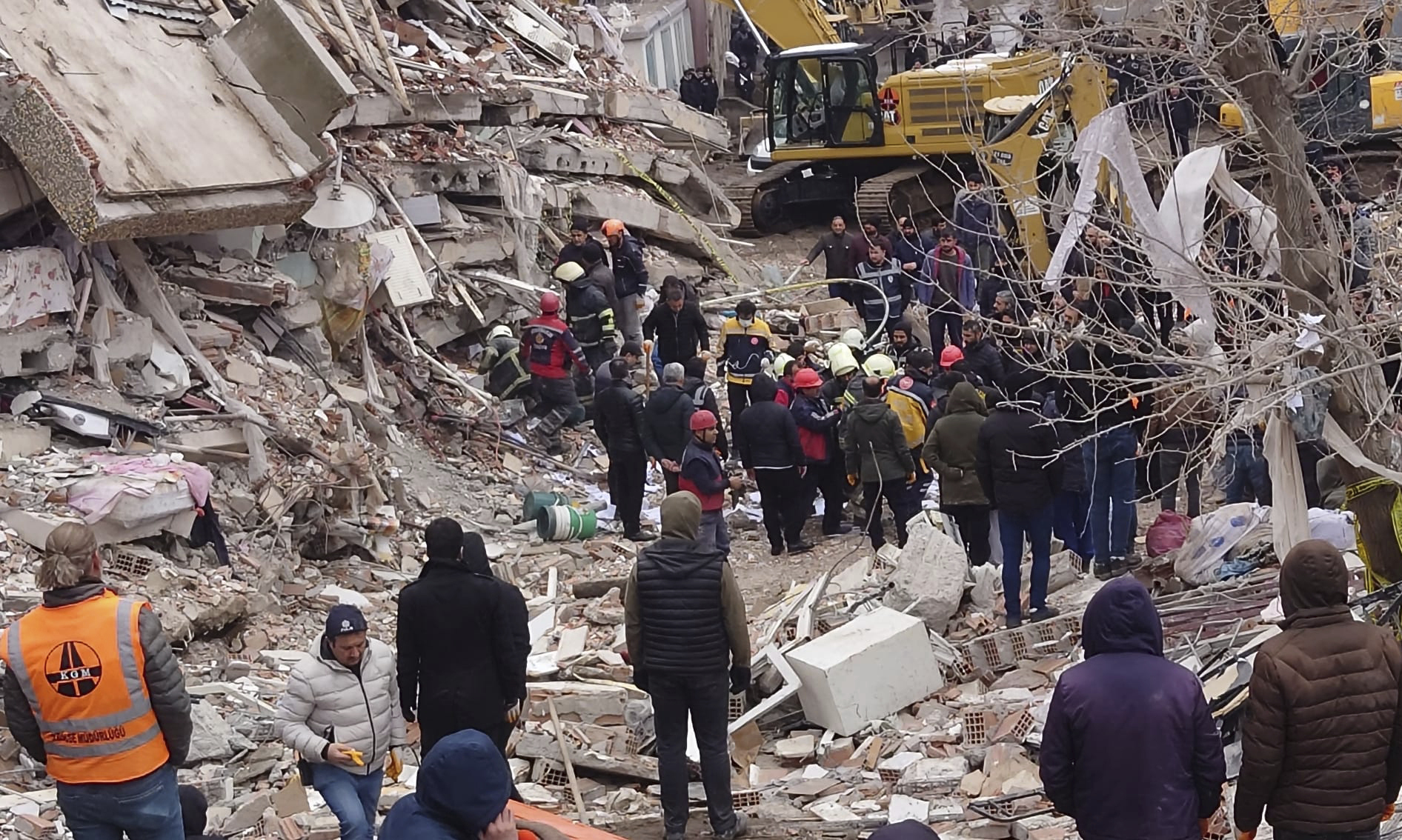Tens of thousands are feared dead after a 7.8 magnitude earthquake struck Turkey and surrounding areas on Monday in the worst natural disaster to hit the country in a century.
The death toll from the tremor, which struck the Turkish city of Gaziantep on Monday morning, has reached 21,000 and looks set to increase further after a second 7.7 magnitude tremor struck the same region just a few hours later.
Hundreds of buildings collapsed in the city located in the south of Turkey, 60 kilometers from the Syrian border.
“It was felt across our borders in Turkey, Northern Cyprus, Iraq, and Syria and led to loss of life in some places. So far, 100 aftershocks have occurred,” said Dr. Haluk Ozener, director of the earthquake research center at Istanbul’s Bogazici University.
Initial modeling provided by Risklayer, a German research group on natural disasters, suggests the death toll could rise to as high as 39,000.
Turkish President Recep Tayyip Erdoğan said the disaster is the biggest experienced in the country since the Erzincan earthquake in 1939, which struck eastern Turkey along the North Anatolian Fault.
“I wish God’s mercy on our citizens who lost their lives in this great tragedy and a speedy recovery to our wounded,” Erdoğan said in a statement.
The Turkish president added that more than 5,300 people have been injured in the crisis, and over 9,000 people are conducting rescue operations to dig out survivors across 10 Turkish provinces.
Footage circulating on social media showed groups of survivors digging children out from the rubble.
Several countries have pledged aid to the region, including 10 EU member states, which deployed search and rescue teams to Turkey on Monday.
“Urban Search and Rescue teams have been quickly mobilized from Bulgaria, Croatia, Czechia, France, Greece, Hungary, Malta, the Netherlands, Poland, and Romania to support the first responders on the ground,” the European Commission said in a statement on Monday.
Turkey’s Energy Minister Fatih Donmez revealed on Monday there had been serious damage to the country’s energy infrastructure. Two critical pipelines used to transport oil and gas to Europe run through the affected region and are understood to have caught fire as a result of the tremors.
The Turkish parliament will be suspended for a week following the earthquakes, and schools across 10 cities will also close their doors for one week. Airports in Hatay, Maraş, and Antep have temporarily closed.






